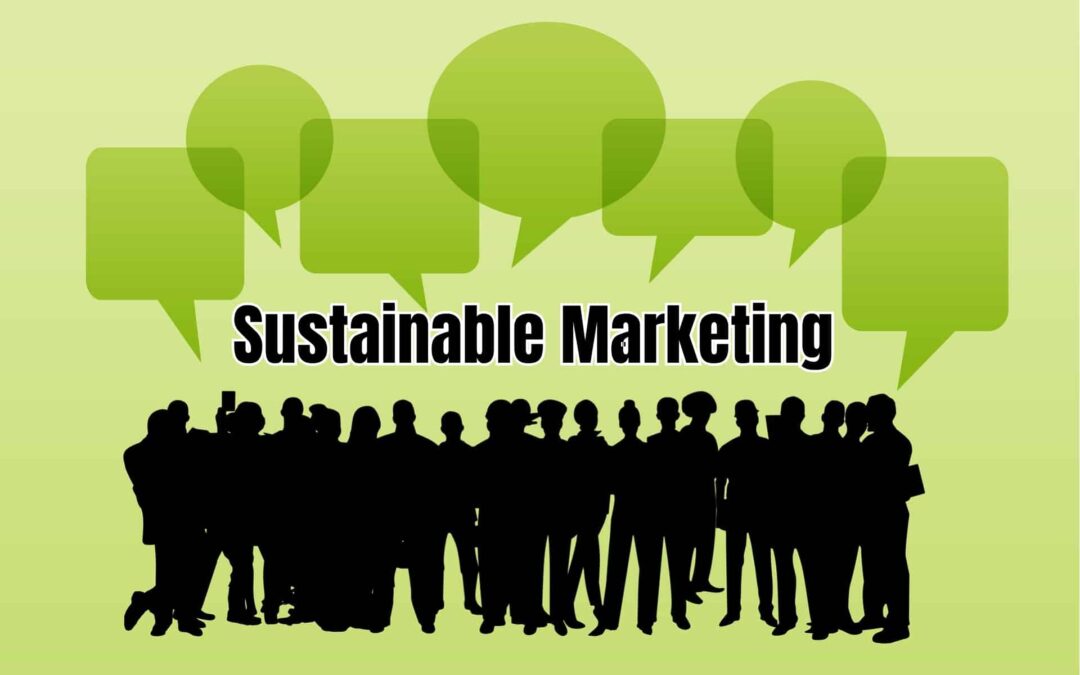Sustainability in marketing signifies a shift in how businesses operate, rather than just a passing trend. It brings a breath of air to a world where environmental issues and climate change are becoming increasingly concerning. Interestingly, companies worldwide are embracing sustainability as a means to connect with individuals who care about the environment. Let’s talk about corporate social responsibility, eco-friendly marketing, and how these sustainable strategies can significantly improve a brand’s reputation.
The importance of Sustainability in Business and Marketing
Although you may think of sustainability as just a catchphrase, it really means much more than that. It stands for a revolution and a mental adjustment. In an era where environmental concerns and climate change dominate media headlines, businesses are acknowledging that sustainability is the path towards the future. However, what is the marketing rationale behind this for companies like yours? Marketing sustainability can mean different things, just like sustainability itself. In their marketing campaigns, more and more brands show that sustainability is important to them.
Some benefits of sustainability in marketing are:
- Getting new customers, especially millennials and Gen Zers who are just starting to buy things, is a challenge. Studies show that Generation Z likes brands that are good for the environment and is ready to spend more on them.
- Getting and keeping employees Younger workers want to work for companies that care about social issues and climate change like they do
- Boosting the brand’s reputation
Green Marketing: Not Just for Specialists
Promoting products holds significance for everyone who cares about the environment, not just a select group of eco-activists. 66% of consumers worldwide are willing to pay more for products, according to a recent survey by the data and measurement firm Nielsen. These figures go beyond statistics; they also demonstrate how consumers consciousness regarding sustainability is growing.
Corporate Social Responsibility’s (CSR) Effect
The focus of discussions about the convergence of sustainability and marketing is corporate social responsibility (CSR). CSR is the term for companies that actively address environmental and social issues. Saying, “Hey, we exist,” is not enough; we also need to act with purpose. Cone Communications reports that an astounding 87% of consumers think that companies ought to be involved in resolving social and environmental issues. This is a call to action, not just a statistic.
Examining Patagonia as an Example
In order to give this idea some life, let’s think about the well-known company Patagonia. They have mastered the technique of incorporating sustainability into their advertising plan. The outdoor apparel brand Patagonia has a long history of supporting environmental preservation. They support neighborhood environmental organizations, make investments in sustainable materials, and promote the reuse and repair of products. They live by it; it’s not just talk. The best part, though? Their sincere dedication has drawn a fervently loyal clientele. People respect their mission and brand.
The Impact of Ripples on Brand Image
Sustainability involves more than just making money; it also involves building a solid and long-lasting brand identity. Businesses that put sustainability first frequently see a big improvement in their reputation. Increased brand loyalty, effective word-of-mouth advertising, and eventually larger profits are the results of this.
In conclusion, companies cannot afford to ignore the sustainability movement; it is more than just a fad. Companies may improve their brand image, draw in environmentally sensitive customers, and contribute to a greener, more sustainable world by supporting eco-friendly products, embracing corporate social responsibility (CSR), and making a firm commitment to sustainable practices.


